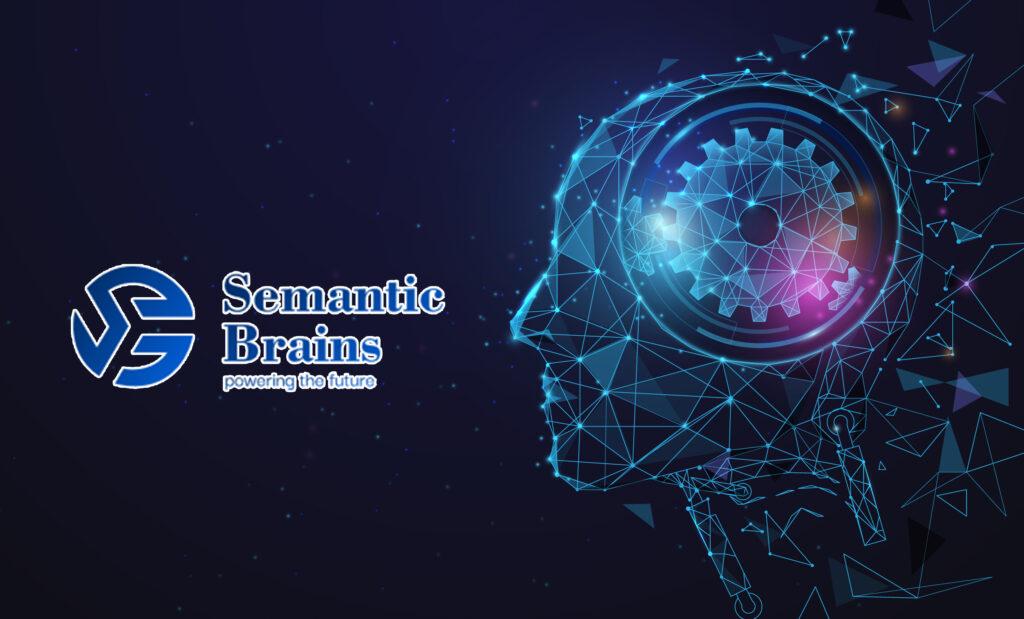AI in Saudi Arabia: Opportunities and Challenges for Businesses
Table of Contents
Artificial Intelligence (AI) is no longer a futuristic idea. It has become a defining element of the Fourth Industrial Revolution, revolutionizing how businesses operate, make decisions, and compete globally. In Saudi Arabia, AI has emerged as a technological frontier and a strategic pillar underpinning the nation’s bold transformation goals under Vision 2030.
Saudi Arabia’s national ambitions to diversify its economy and reduce its dependence on oil are intertwined with digital transformation, and AI is at the core of this shift. With ambitious government initiatives, rising investments, and a growing appetite for innovation, Saudi businesses are increasingly looking to AI as a catalyst for growth. However, the road to AI maturity is not without its obstacles.
This comprehensive article explores AI’s vast opportunities and persistent challenges to businesses operating in the Kingdom of Saudi Arabia.
The Strategic Importance of AI in Vision 2030
Saudi Arabia’s Vision 2030 is a national roadmap to transform the Kingdom into a thriving, knowledge-based economy. AI is a foundational enabler of this vision. In 2020, the government launched the National Strategy for Data and Artificial Intelligence (NSDAI) with the ambitious goal of positioning the Kingdom among the top 15 countries in AI by 2030.
To spearhead this transformation, the Saudi Data and Artificial Intelligence Authority (SDAIA) was established, along with institutions like the National Center for Artificial Intelligence (NCAI) and the National Information Center (NIC). Together, these entities are driving national AI policy, data governance, talent development, and cross-sectoral adoption.
Key targets under the NSDAI include:
- Training 20,000 AI and data specialists by 2030
- Attracting $20 billion in investments in the AI and data sectors
- Building smart cities, including NEOM, as testbeds for AI-powered innovation
This top-down strategy reflects the Kingdom’s recognition of AI as a transformative force with the power to redefine the economy, public services, and national competitiveness.
Current State of AI in Saudi Arabia
Saudi Arabia is witnessing a rapid and strategic embrace of Artificial Intelligence, with momentum building across the public and private sectors. The nation’s AI ecosystem is being shaped through infrastructure investments, talent development, research, and an innovation-driven mindset that aligns with Vision 2030. Below is an in-depth look at the key components contributing to this transformation:
1. Infrastructure Development: Laying the Digital Foundation
Robust infrastructure is essential to support large-scale AI applications, and Saudi Arabia has prioritized this heavily.
- Cloud Computing: Major global players like Oracle and Google Cloud have established local cloud regions in the Kingdom. Oracle launched its Riyadh region to meet the growing demand for secure, scalable AI and data solutions.
- 5G Connectivity: Telecom giants like STC and Zain KSA are rolling out extensive 5G networks, which are essential for real-time AI applications such as autonomous vehicles, smart cities, and IoT ecosystems.
- Data Centers: Companies such as Huawei and AIC (Advanced Information Company) are contributing to a national data strategy by launching hyperscale data centers that can power AI processing and big data analytics.
This digital backbone enables rapid experimentation and deployment of AI across industries, including retail, finance, healthcare, and logistics.
2. Thriving Startup Ecosystem: Fueling Innovation and Disruption
Saudi Arabia’s entrepreneurial landscape is evolving quickly, with a growing number of AI-first startups developing solutions tailored to regional challenges.
- Mozn: A leading AI company focused on natural language processing (Arabic NLP), fraud detection, and identity verification solutions for the financial and governmental sectors.
- Quant: Specializes in data analytics and AI-driven insights for enterprises, offering tools that support better decision-making and customer engagement.
- Lean Technologies: A fintech platform that uses AI to streamline financial data aggregation, boosting digital banking and payments innovation.
These startups are attracting funding from both local investors and global venture capital firms, signaling strong confidence in Saudi Arabia’s AI potential. The government’s Monshaat and The Garage accelerator also provide critical support in mentorship, regulation, and market access.
3. Academic and R&D Growth: Building the Knowledge Economy
Universities and research institutions are playing a vital role in nurturing the Kingdom’s AI capabilities:
- KAUST (King Abdullah University of Science and Technology) has established AI research centers focused on computer vision, robotics, and smart infrastructure.
- King Saud University and Prince Sultan University are offering dedicated programs in data science, machine learning, and AI engineering.
- Effat University in Jeddah is one of the first institutions to introduce AI education for women, contributing to inclusivity in tech.
Collaborative R&D between academia and industry is leading to practical innovations — from smart energy grids to predictive maintenance in manufacturing.
4. Public-Private Partnerships: Accelerating Real-World Deployment
Saudi Arabia is leveraging global expertise through strategic partnerships that bridge knowledge gaps and accelerate adoption:
- IBM is working with SDAIA to develop AI solutions for public administration and citizen services, including language translation, chatbots, and data analysis.
- Google Cloud has partnered with local authorities to enable AI-driven digital transformation in healthcare and education.
- SenseTime, one of the world’s largest AI software companies, has partnered with Saudi entities to deliver computer vision solutions for surveillance, crowd management, and safety systems, particularly in high-density areas like Mecca during Hajj.
These collaborations bring in world-class technology while building local capabilities, ensuring long-term self-sufficiency in AI innovation.
5. AI in Action: Use Cases Already Impacting Daily Life
AI is not just a future vision it is already reshaping everyday experiences in Saudi Arabia:
- Autonomous Delivery Robots: Piloted in smart zones and universities, these robots are enhancing last-mile delivery sustainably.
- AI-Powered Surveillance: Deployed in urban areas to monitor traffic, enforce safety regulations, and detect anomalies in real time.
- Energy Optimization Systems: Used by energy giants like Saudi Aramco to manage energy loads, reduce emissions, and improve efficiency.
- Smart Services: Government platforms like Absher are incorporating AI for automated assistance, reducing wait times, and enhancing user experience.
From public safety to e-commerce logistics, AI is becoming integral to the Kingdom’s digital infrastructure and citizen services.
Opportunities for Business in Saudi Arabia

As Saudi Arabia positions itself as a global leader in Artificial Intelligence (AI), businesses across the Kingdom are discovering new ways to transform operations, drive innovation, and unlock competitive advantage. Guided by the ambitious Vision 2030, AI is not just a buzzword—it’s a national priority backed by government strategy, infrastructure investment, and public-private partnerships.
In this blog, we explore the key opportunities AI offers businesses in Saudi Arabia across various sectors—and how organizations can begin to capitalize on this momentum.
1. Operational Excellence Through AI
AI is fundamentally changing how businesses operate, especially in manufacturing, logistics, and industrial sectors. Through technologies such as machine learning and predictive analytics, companies can now achieve unprecedented levels of efficiency.
Take Aramco and SABIC, for example. These industry leaders are deploying AI-driven systems to monitor refinery processes in real-time, predict equipment failures, and reduce downtime—all while enhancing workplace safety. In logistics, AI algorithms anticipate demand patterns, optimize delivery routes, and manage fleets dynamically, which is critical given the Kingdom’s surging e-commerce market.
Use Case: AI-powered logistics systems can reduce delivery times, cut fuel costs, and optimize warehouse operations, providing massive value in a digitally connected consumer economy.
2. Smarter Decision-Making with Big Data and AI
Businesses today are flooded with data, but without AI, that data remains underutilized. AI unlocks this potential by transforming raw information into actionable insights.
Using predictive analytics, companies can forecast demand, manage inventory, and reduce overproduction. Natural language processing (NLP) tools allow businesses to monitor social sentiment, while real-time dashboards offer executives a dynamic view of key metrics.
Telecom giants like STC are leading the way—using AI to analyze customer behavior, anticipate churn, and personalize offers. In the financial sector, AI is revolutionizing credit scoring, fraud detection, and portfolio management, helping banks make faster and more accurate decisions.
3. Sector-Specific Innovations: AI in Action
AI’s impact is being felt across every major sector in the Saudi economy:
A. Healthcare
AI is driving early diagnosis through computer vision, enabling virtual consultations via chatbots, and managing hospital resources with predictive models. The Seha Virtual Hospital, one of the largest in the region, integrates AI for remote healthcare delivery, improving patient outcomes and accessibility.
B. Finance
The Saudi fintech ecosystem is rapidly growing, powered by AI-driven innovation. Solutions include fraud detection, automated compliance (via RPA), and personalized financial planning. Startups like STC Pay and Tamara are embedding AI into their core services to enhance security and customer experience.
C. Retail & E-Commerce
With the boom in online shopping, brands like Namshi and Noon use AI for smart product recommendations, demand forecasting, and automated customer service. These technologies are boosting customer loyalty and operational efficiency.
D. Energy & Sustainability
AI supports Saudi Arabia’s clean energy goals by optimizing smart grids, predicting renewable energy outputs, and minimizing emissions. Companies like the SEC and Aramco are already using AI to reduce environmental impact while increasing operational integrity.
E. Education & EdTech
AI is personalizing learning experiences through adaptive platforms, automating grading, and predicting student success. Platforms like Rwaq and Classera are pioneers in Arabic-language AI tools, enhancing educational access and outcomes across the Kingdom.
4. Driving Innovation and New Business Models
AI is enabling companies to launch entirely new digital products and services. With automation and intelligent insights, businesses can reach new markets, personalize customer engagement, and operate more flexibly.
Initiatives like NEOM serve as experimental testbeds for next-generation AI use cases in sustainability, mobility, and smart governance, providing businesses with a unique sandbox for innovation.
How Semantic Brain Is Driving Digital Transformation in Saudi Arabia

Semantic Brain is playing a pivotal role in the digital transformation of Saudi Arabia by leveraging its advanced AI solutions to address the Kingdom’s unique challenges and opportunities. Through innovative technologies, localized AI tools, and strategic partnerships, the company is actively contributing to several key aspects of Saudi Arabia’s digital journey.
1. Empowering Businesses with AI-Driven Solutions
As part of the push to modernize industries and diversify the economy under Vision 2030, businesses in Saudi Arabia are increasingly adopting AI to enhance operational efficiency, streamline processes, and improve customer experiences. Semantic Brain is helping local businesses navigate this transformation by:
- Automating business processes: Semantic Brain’s AI solutions, such as chatbots, automated customer service systems, and process optimization tools, allow Saudi businesses to reduce manual workloads and enhance productivity.
- Predictive analytics: By applying machine learning algorithms to data, Semantic Brain enables companies to make data-driven decisions, improve forecasting, and optimize resource allocation.
- Custom AI tools: The company creates AI solutions tailored to the needs of specific industries, including healthcare, retail, education, and government, helping organizations achieve a higher level of digital maturity.
2. Enhancing Government Services with Smart Solutions
Saudi Arabia is investing heavily in digital government services as part of its Vision 2030 goal to provide efficient, transparent, and accessible public services. Semantic Brain supports this transformation by:
- AI-powered government platforms: The company develops customized AI-driven platforms for government departments to improve service delivery. These platforms can automate tasks such as document processing, citizen requests, and data management, leading to faster and more accurate outcomes.
- Smart city initiatives: As Saudi cities like Riyadh and NEOM evolve into smart cities, Semantic Brain’s AI tools help manage critical infrastructure, including traffic systems, energy distribution, and urban planning. AI solutions enable cities to operate more efficiently and sustainably.
3. Revolutionizing Education with AI
One of the pillars of digital transformation in Saudi Arabia is modernizing education and ensuring that students are equipped with the skills required to thrive in a digital economy. Semantic Brain contributes by:
- Arabic-first educational tools: The company creates AI-powered e-learning platforms that cater specifically to Arabic-speaking students. These platforms offer adaptive learning experiences, where content is personalized to each learner’s needs, helping improve engagement and outcomes.
- AI-powered tutors and chatbots: These tools provide students with round-the-clock support, answering questions, guiding them through lessons, and offering feedback on performance—empowering students to take control of their learning journey.
4. Supporting Innovation in Healthcare
AI is revolutionizing healthcare by improving diagnostic accuracy, treatment plans, and patient care. Semantic Brain is at the forefront of transforming Saudi healthcare by:
- AI-powered health diagnostics: The company develops AI models that analyze medical data to assist doctors in diagnosing diseases more accurately and efficiently. These models are designed to understand regional health trends and conditions specific to Saudi Arabia.
- Telemedicine solutions: With AI-driven telemedicine platforms, Semantic Brain enhances access to healthcare, particularly in remote areas, by enabling patients to consult with doctors and specialists via digital platforms.
- Health data management: Semantic Brain helps healthcare providers streamline data collection, management, and sharing through AI, improving the overall quality of care and making healthcare systems more responsive to patient needs.
5. Accelerating the Growth of Local AI Talent
As part of its commitment to supporting Saudi Arabia’s workforce development goals, Semantic Brain plays a key role in nurturing local AI talent. The company offers:
- Training and upskilling programs: Through workshops, boot camps, and collaborations with universities, Semantic Brain helps equip Saudi youth with the skills needed to succeed in the digital economy, especially in AI and data science fields.
- AI education platforms: The company creates accessible resources for young Saudis to learn about AI and machine learning in Arabic, enabling them to engage with advanced technologies in their native language.
6. Contributing to Saudi Arabia’s Vision 2030 Digital Transformation Goals
Semantic Brain’s contributions align directly with Saudi Arabia’s Vision 2030, which seeks to build a sustainable, diversified, and tech-driven economy. By advancing AI technology in multiple sectors—business, education, healthcare, and government—Semantic Brain supports the Kingdom’s long-term goals:
Creating a knowledge-based economy: By empowering Saudi businesses and citizens with AI, Semantic Brain is helping to build a knowledge-based economy that is not only more efficient but also more competitive on the global stage.
Fostering innovation: With custom-built AI solutions that meet Saudi Arabia’s specific needs, Semantic Brain is contributing to the development of homegrown innovation, reducing reliance on foreign technologies.
Improving digital infrastructure: The company is part of the broader effort to enhance the country’s digital infrastructure, providing the tools needed for businesses, governments, and citizens to leverage AI and data-driven technologies.
Overcoming the Challenges of AI Adoption in Saudi Arabia

Artificial Intelligence (AI) is transforming how organizations operate across the globe, and Saudi Arabia is no exception. With Vision 2030 at its core, the Kingdom is investing heavily in AI to diversify the economy, enhance public services, and position itself as a regional tech powerhouse. From smart cities like NEOM to AI-driven healthcare and finance platforms, the potential is enormous.
Yet, while the momentum is undeniable, many businesses, especially small and medium enterprises (SMEs), face significant challenges in implementing and scaling AI solutions. These challenges span talent acquisition, cost, data governance, cultural resistance, and regulatory ambiguity.
1. Bridging the AI Talent Gap Through Collaboration and Training
One of the most critical challenges is the shortage of skilled local talent. Despite robust government efforts through initiatives like Tamheer, FutureSkills, and the SDAIA AI Training Academy, there remains a reliance on foreign expertise for AI implementation. This raises costs and can limit long-term innovation due to knowledge gaps and a lack of localization.
Solution:
To build a sustainable talent pipeline, deeper partnerships between academic institutions and the private sector are essential. Universities like KAUST and King Saud University should collaborate with leading Saudi companies to co-create AI curricula tailored to market needs. Internship programs, hackathons, and industry-led research initiatives can accelerate hands-on learning and ensure that graduates are job-ready. Additionally, investing in continuous upskilling programs for current employees helps build internal AI capabilities and reduces dependency on external consultants.
2. Reducing the High Cost of AI Implementation
AI solutions require more than just algorithms—they demand robust infrastructure, cloud computing power, data storage systems, and cybersecurity frameworks. For large enterprises, this may be manageable, but for SMEs, the initial cost can be prohibitive.
Solution:
The government can play a pivotal role by expanding AI-as-a-Service (AIaaS) platforms and offering financial incentives. AIaaS allows businesses to access machine learning models, data analytics tools, and AI-driven services on a subscription basis, without the need for extensive internal development. Additionally, subsidized cloud computing credits and public-private innovation hubs can help reduce financial barriers, allowing even smaller organizations to begin their AI journeys.
3. Strengthening Data Privacy and Cybersecurity
AI systems thrive on data, but with large-scale data collection comes greater responsibility. Businesses are increasingly vulnerable to data breaches, misuse of personal information, and compliance risks. While Saudi Arabia’s Personal Data Protection Law (PDPL) is a significant step forward, many businesses still struggle to meet its requirements.
Solution:
Organizations must embed data governance into their AI strategy. This includes:
- Adopting data anonymization and encryption techniques to protect sensitive information.
- Appointing data protection officers (DPOs) to oversee compliance.
- Creating internal data ethics boards to monitor fairness, bias, and accountability.
By proactively building trust in how data is handled, companies can mitigate risk and gain consumer confidence, especially in sectors like healthcare and finance.
4. Addressing Cultural and Organizational Resistance
AI transformation isn’t just about tools—it’s about people. Many employees fear that AI will make their jobs obsolete, or don’t fully understand its value. Executives, on the other hand, may hesitate to invest in AI due to uncertainty about return on investment (ROI).
Solution:
Successful AI adoption starts with culture change. Business leaders must:
- Communicate a clear vision of how AI supports human talent rather than replacing it.
- Involve cross-functional teams in AI strategy development to foster ownership.
- Share early wins and real-world use cases to demonstrate value.
- Offer regular training to increase AI literacy across all departments.
A workforce that understands and embraces AI will not only support transformation—it will drive it.
5. Navigating Legal and Regulatory Ambiguity
AI introduces a host of complex legal and ethical questions, such as:
- Who is liable if an AI system makes an incorrect decision?
- How do we ensure algorithmic fairness and explainability?
- What rights do consumers have regarding automated decisions?
While organizations like SDAIA are working to provide clearer guidance, regulatory ambiguity remains a significant barrier, especially for companies operating in high-stakes sectors like finance, healthcare, and mobility.
Solution:
Businesses should proactively engage in regulatory sandboxes—supervised environments where new AI applications can be tested safely. This allows both companies and regulators to learn, iterate, and build trust. Companies should also establish internal ethics committees and consult with legal compliance experts to ensure that AI tools meet not only today’s standards but are adaptable to future regulations.
Government Support: Laying the Foundation for AI Growth
Saudi Arabia’s leadership has made it clear: AI is not a trend, it’s a cornerstone of the Kingdom’s future economy. The government is playing an active and enabling role by building a policy, funding, and infrastructure ecosystem that supports innovation and business adoption of AI.
1. SDAIA – The Strategic Brain Behind AI Policy
The Saudi Data and Artificial Intelligence Authority (SDAIA) is the Kingdom’s central authority for driving AI strategy. From establishing national data policies to setting ethical AI guidelines and governance frameworks, SDAIA ensures that AI implementation is both impactful and responsible. The authority’s initiatives help create an environment where AI solutions are trusted, secure, and aligned with Saudi values.
2. MISA – Unlocking Opportunities for Investment
The Ministry of Investment (MISA) is another key player, facilitating the entry of global tech firms into the Saudi market. MISA provides support through incentives, fast-track licensing, and collaborative opportunities for foreign and local businesses. This has enabled global AI giants like Google Cloud and Huawei to partner with Saudi institutions, enriching the local ecosystem and transferring valuable expertise.
3. Monsha’at – Empowering Startups and Entrepreneurs
For startups and SMEs, Monsha’at (the General Authority for Small and Medium Enterprises) offers critical support in the form of funding, business development tools, and AI-focused training programs. By reducing barriers to entry and encouraging innovation at the grassroots level, Monsha’at ensures that smaller players can also contribute to the national AI vision.
4. NEOM and The Garage – Innovation Testbeds
Mega projects like NEOM and The Garage are designed to be more than just smart cities—they are living labs for testing, scaling, and commercializing next-generation AI solutions. These zones attract global talent and offer businesses a unique opportunity to experiment with AI in real-world environments, from mobility and healthcare to environmental monitoring and digital governance.
Together, these government bodies are creating an ecosystem where businesses have the policy support, resources, and infrastructure to adopt and scale AI solutions with confidence.
Strategies for Businesses to Thrive in the AI Era

With the groundwork laid by the government, it’s now up to businesses to adopt the right strategies to maximize the value of AI. Here’s how Saudi companies can position themselves for success:
1. Align AI with Core Business Objectives
AI should never be adopted for its novelty alone. The most successful implementations are those that solve real business problems—whether that’s improving customer experience, reducing operational costs, or creating new revenue streams. Companies need to start by identifying high-impact use cases where AI can deliver measurable results.
For example, a logistics company might use AI to optimize delivery routes and reduce fuel costs, while a healthcare provider could use machine learning for early diagnosis of diseases. The key is business alignment before technology deployment.
2. Start Small: Pilot, Scale, Grow
Jumping straight into full-scale AI transformation can be risky. Instead, businesses should follow a Pilot-Scale-Grow approach:
- Pilot: Choose a small, manageable project with clear KPIs.
- Scale: Once the pilot shows results, expand its use across departments or geographies.
- Grow: Use lessons learned to build more complex, enterprise-wide AI initiatives.
This method reduces risk, builds internal buy-in, and allows for iterative learning and improvement.
3. Invest in People and Evolve Processes
AI success depends as much on people as on machines. Companies need to invest in upskilling their workforce—training employees in data literacy, AI tools, and ethical considerations. At the same time, internal processes must be rethought to integrate AI effectively, from workflows and decision-making chains to KPIs and performance tracking.
A culture of innovation should be fostered, where employees are encouraged to experiment, challenge traditional processes, and think creatively about how AI can enhance their roles.
4. Collaborate with Experts
Few organizations have all the capabilities needed to deploy AI internally from day one. Partnerships with AI consultancies, technology providers, universities, and research institutions can help bridge this gap. These collaborations bring in critical expertise, accelerate implementation timelines, and reduce costly mistakes.
Saudi businesses can benefit greatly from working with partners who have experience in AI strategy, data engineering, and implementation, especially in highly regulated or technically complex sectors.
5. Embrace Responsible and Ethical AI
Trust is foundational to long-term AI success. Businesses must adopt AI systems that are transparent, fair, and secure. This means:
- Ensuring algorithms are explainable and auditable.
- Protecting user data through privacy-by-design frameworks.
- Avoiding bias in data collection and model training.
- Following the ethical guidelines set by SDAIA and international best practices.
By embracing responsible AI practices from the start, companies can build trust with customers, partners, and regulators, reducing reputational risk and increasing adoption.
The Road Ahead: A Future Driven by Intelligence

Saudi Arabia’s AI journey is just beginning. With a supportive government, strategic investments, and a youthful, digitally savvy population, the Kingdom is well-positioned to become a regional and even global AI powerhouse.
Over the next decade, expect to see:
- AI is fully embedded in government services and smart cities
- Local unicorns in AI emerging from the startup ecosystem
- Cross-border AI collaborations with global tech leaders
Businesses that embrace this change and act boldly today will be tomorrow’s market leaders.
Conclusion
AI represents a once-in-a-generation opportunity for Saudi businesses. By leveraging the Kingdom’s national strategy, infrastructure, and innovation ecosystem, companies can enhance their competitiveness and contribute to building a diversified, knowledge-driven economy.
While the path is not without challenges, the rewards are profound. In a world increasingly defined by algorithms and data, those who lead in AI will lead in business, and Saudi Arabia is racing to the front of the pack.


